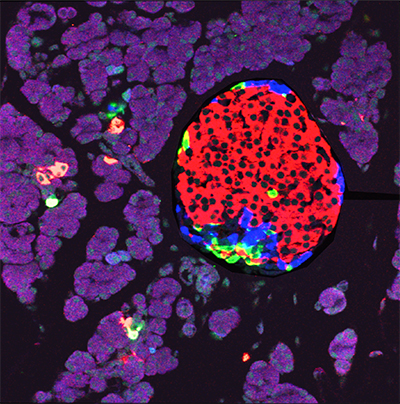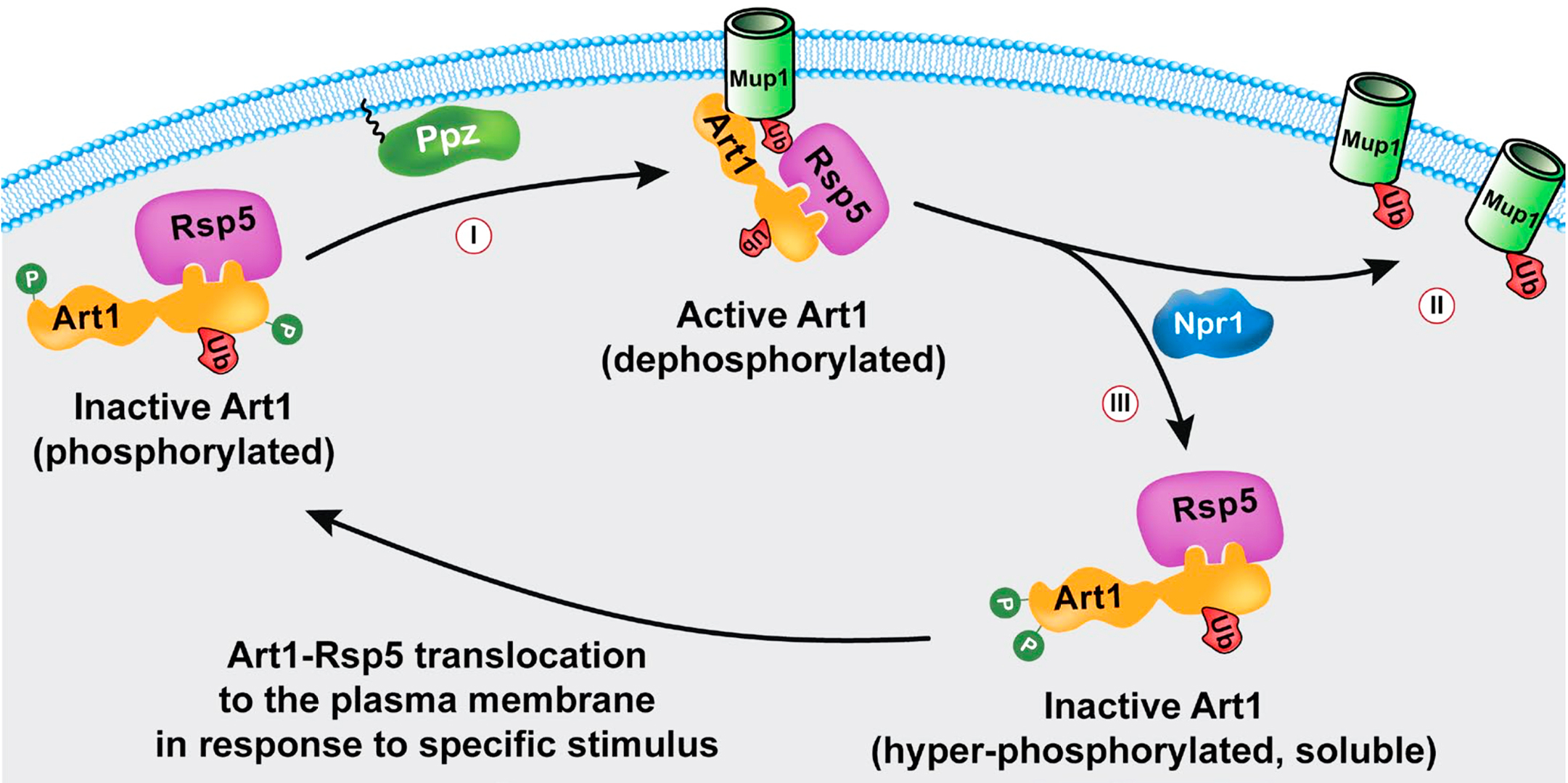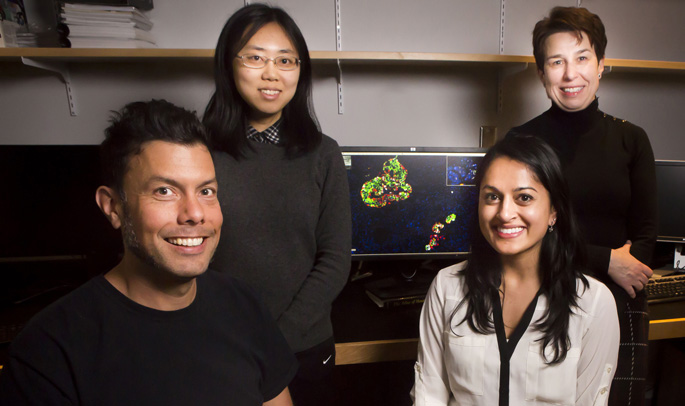Stephen Doster
-

Key to Islet Cell Differentiation
Micrograph of an adult mouse pancreatic islet with immunofluorescence staining for (A) glucagon (α cells, blue), insulin (β cells, red), and somatostatin (δ cells, green). The high pinkish background tissues are mostly acinar and duct cells. Image kindly provided by Guoquiang Gu. Copyright 2019. The pancreatic islets of Langerhans are… Read MoreJan. 31, 2019
-

Caprioli Earns 2019 ABRF Annual Award for Outstanding Contributions to Biomolecular Technologies
The 2019 ABRF Annual Award for Outstanding Contributions to Biomolecular Technologies will be presented to Richard M. Caprioli, the Stanford Moore Professor of Biochemistry and Director of the Mass Spectrometry Research Center at Vanderbilt University School of Medicine. Dr. Caprioli’s research focuses on the discovery of temporal and spatial processes… Read MoreJan. 28, 2019
-

Crowe leads ‘sprint’ to find anti-Zika antibodies
by Bill Snyder Scientists at Vanderbilt University Medical Center and colleagues in Boston, Seattle and St. Louis are racing to develop — in a mere 90 days — a protective antibody-based treatment that can stop the spread of the Zika virus. This is the first of four “scientific sprints” sponsored… Read MoreJan. 25, 2019
-

American Chemical Society honors Lindsley’s research
Jan. 24, 2019, 10:26 AM by Bill Snyder The year is starting off with a bang for Craig Lindsley, PhD, director of medicinal chemistry in the Vanderbilt Center for Neuroscience Drug Discovery (VCNDD). Craig Lindsley, PhD Earlier this month Lindsley won the inaugural Scientific Achievement Award in Drug Discovery… Read MoreJan. 25, 2019
-

Major grant to bolster research on inflammation-related cancers
Jan. 23, 2019, 11:47 AM A new grant is helping Eunyoung Choi, PhD, left, James Goldenring, MD, PhD, Jimin Min, PhD, and colleagues around the globe to study inflammation-related cancers. (photo by John Russell) by Tom Wilemon Cancer Research UK has awarded a 20-million-pound grant (about $26 million U.S.) to… Read MoreJan. 24, 2019
-

Targeting Proteins for Endocytosis
Reproduced under the Creative Commons Attribution Noncommercial Share Alike 4.0 International License from S. Lee et al., (2019) J. Cell Biol., published January 4, DOI: 10.1083/jcb.201712144. Copyright 2019 S. Lee, et al. One mechanism that cells use to modulate the activity of plasma membrane proteins is to remove them from… Read MoreJan. 23, 2019
-

Signals from the “conveyor belt”
by Bill Snyder Cellular signaling pathways involved in everything from the proliferation of fatty tissue to the death of neurons in the brain are tightly regulated by “cascades” of sequentially activated enzymes, MAP kinases. These enzymes are held in the proper position for activation by “scaffold” proteins. This model does… Read MoreJan. 17, 2019
-

DNA’s on/off switch
by Bill Snyder (iStock) The enzyme DNA primase synthesizes the RNA primers essential to initiate the replication of our genomes. In 2017, Walter Chazin, PhD, and colleagues, working in collaboration with Jacqueline Barton, PhD, and colleagues at the California Institute of Technology, showed that a unique iron-sulfur… Read MoreJan. 17, 2019
-

Building a pancreas
by Leigh MacMillan In the developing pancreas, seemingly equivalent progenitor cells differentiate into the four types of hormone-positive islet cells: alpha, beta, gamma and delta. Insulin-secreting beta cells are destroyed in type 1 diabetes, and understanding how beta cells develop could lead to new cellular or regenerative… Read MoreJan. 17, 2019
-

Study points to alternate therapy for rare form of diabetes
by Jill Clendening Vanderbilt University Medical Center researchers say an unexpected finding during the cellular analysis of human pancreatic tissue has revealed new information about a rare type of diabetes and underscores the importance of genetic testing for some individuals diagnosed with type 1 diabetes. The research centers on… Read MoreJan. 17, 2019